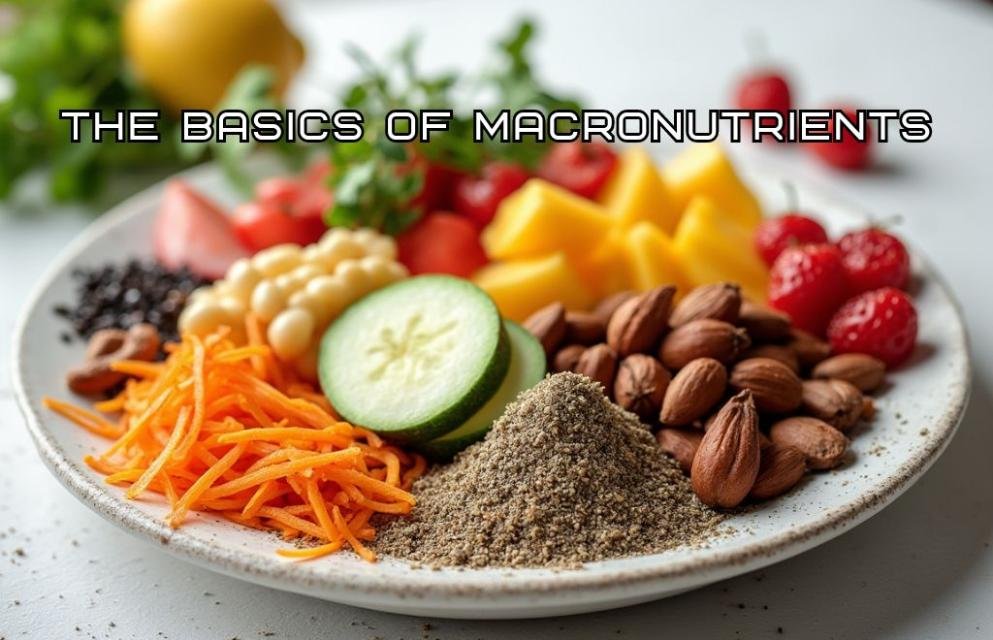Introduction to Nutrition
What constitutes nutrition, and what is its significance? Nutrition refers to the process by which our bodies obtain the energy and nutrients they need to function properly. From growth and development to maintaining basic bodily functions, nutrition is at the core of everything. Whether you’re an athlete, a busy professional, or just trying to stay healthy, understanding nutrition is key to improving your quality of life.
The Basics of Macronutrients

Carbohydrates: Your Body’s Fuel
Carbohydrates are the body’s primary source of energy. They power everything you do, from walking to running, thinking to sleeping.
- Simple vs. Complex Carbs: Simple carbs break down quickly, providing a fast burst of energy, while complex carbs digest slowly, giving sustained energy throughout the day. Think of simple carbs like fast fuel, while complex carbs are more like long-burning logs on a fire.
- Why You Need Carbs: Your brain, muscles, and organs all need carbohydrates to perform at their best. Without them, you could feel sluggish or irritable.
Proteins: Building Blocks of Life
Proteins are essential for building and repairing tissues. They also play a key role in enzyme and hormone production.
- Essential vs. Non-Essential Amino Acids: Essential amino acids must come from food, while non-essential amino acids can be made by the body. Protein is essential for muscle repair and immunological function.
- Protein Sources: Animal-based sources like meat, fish, and eggs are great, but plant-based options such as beans, lentils, and tofu are equally valuable.
Fats: The Beneficial, the Detrimental, and the Indispensable
Contrary to popular belief, not all fats are detrimental. In fact, your body needs fat for energy and cell function.
- Saturated vs. Unsaturated Fats: Saturated fats (found in butter and red meat) should be consumed in moderation, while unsaturated fats (found in olive oil, nuts, and avocados) are considered healthier.
- The significance of healthy fats lies in their essential roles in cognitive function, hormone synthesis, and the absorption of fat-soluble vitamins such as A, D, E, and K.
Understanding Micronutrients

Vitamins: The Powerhouses for Health
Vitamins are organic compounds your body needs in small amounts to function properly.
- Fat-Soluble vs. Water-Soluble Vitamins: Fat-soluble vitamins (A, D, E, K) are stored in the body, while water-soluble vitamins (B, C) need to be replenished daily.
- Top Vitamin Sources: Colorful fruits, leafy greens, dairy products, and fish are excellent sources of essential vitamins.
Minerals: The Key to Body Function
Minerals are inorganic substances that help your body carry out a variety of processes.
- Essential Minerals: Calcium, magnesium, potassium, and iron are critical for bone health, muscle function, and oxygen transport.
- How Minerals Affect Your Health: A lack of essential minerals can lead to various health issues, such as osteoporosis (from low calcium) or anemia (from low iron).
The Role of Water in Nutrition
Water is life. Every system in your body depends on it to carry nutrients to cells, regulate body temperature, and flush out toxins.
- Hydration and Body Function: Water supports digestion, circulation, and even cognitive function.
- How Much Water Do You Really Need? Aim for 8 cups a day, but adjust based on activity level and climate.
Balanced Diet: What Does It Really Mean?

The Concept of a Balanced Plate
A balanced diet consists of the right amounts of carbohydrates, proteins, fats, vitamins, and minerals. Imagine your plate divided into sections: half should be vegetables and fruits, a quarter whole grains, and the other quarter lean proteins.
Understanding Portion Sizes
Controlling portions is just as important as choosing the right foods. Overeating, even healthy foods, can lead to weight gain and other health issues.
The Importance of Nutrient Timing
Pre-Workout Nutrition
Eating the right foods before a workout gives you energy and prevents fatigue. Select easily digestible carbohydrates and a modest quantity of protein.
Post-Workout Nutrition
After exercising, focus on recovery by replenishing glycogen stores with carbohydrates and aiding muscle repair with protein.
Special Diets: What Works for You?
The Mediterranean Diet
The Mediterranean diet, abundant in fruits, vegetables, whole grains, and healthy fats, is associated with various health advantages, notably a reduced risk of heart disease.
The Ketogenic Diet
The ketogenic diet emphasizes a high-fat, low-carbohydrate consumption, promoting the body’s utilization of fat for energy. This diet is popular for weight loss, though it may not be suitable for everyone.
Common Nutrition Myths Debunked
Carbs Make You Fat
Not all carbs are bad. Complex carbs found in whole grains and vegetables are vital for energy and should be included in a balanced diet.
You Need Supplements to Be Healthy
While supplements can help with deficiencies, a well-rounded diet is usually enough to meet your nutritional needs.
The Impact of Poor Nutrition
Poor nutrition can lead to a host of issues, from obesity and diabetes to heart disease and even mental health disorders. A poor diet can also affect mood, energy levels, and cognitive performance.
Superfoods: Fact or Fiction?
What Are Superfoods?
Superfoods like kale, blueberries, and quinoa are nutrient-dense and packed with antioxidants, but no single food can provide all the nutrients you need.
Conclusion of Nutrition
Nutrition is the foundation of good health, impacting everything from your energy levels to your long-term well-being. By understanding how macronutrients, micronutrients, and hydration work together, you can make informed choices that fuel your body effectively.

